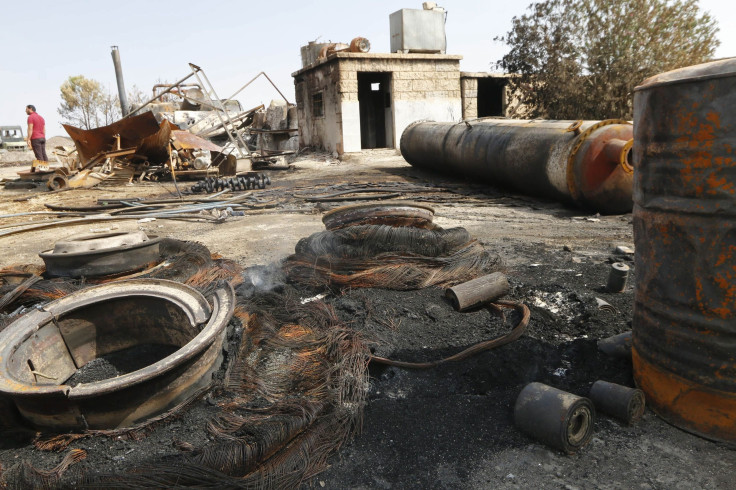ISIS Finance Minister Abu Saleh Killed In Coalition Airstrike In Iraq: US Military

The finance minister and two other senior leaders of the Islamic State group, also known as ISIS and ISIL, were killed in airstrikes in Iraq last month, the Pentagon said Thursday. Abu Saleh was the director of ISIS finances and coordinated the militant group's profits that are generated largely from oil, extortion and taxes within its territory. Saleh worked closely with Abu Sayyaf, the group's oil minister, before he was killed by U.S. Special Operation Forces in Syria in May.
“Their removal will degrade ISIL’s ability to command and control troops, and it disrupts their ability to finance their efforts,” said Col. Steve Warren, a spokesman for Operation Inherent Resolve, the mission to fight ISIS in Iraq. “These strikes are an example of how we’re able to decimate networks.”
Warren described Saleh as one of the most senior members of ISIS, as well as a former al Qaeda member. The identities of the other two ISIS leaders killed in the airstrikes is not clear, but Warren said they were involved with making money for the group. All of the leaders were killed in airstrikes in the Iraqi city of Tal Afar, Warren said.
The strikes on ISIS leaders in Iraq are part of the U.S.-led coalition's effort to destroy the group's financial infrastructure. In recent briefings U.S. officials, including Secretary of Defense Ash Carter, said the coalition is targeting ISIS oil tankers and stockpiles inside Syria and Iraq.
The U.S. Treasury is also working to ensure that ISIS money is not valuable outside of the territory it controls. It has blacklisted more than 30 people involved in trade and financial support for the militant group.
© Copyright IBTimes 2024. All rights reserved.





















